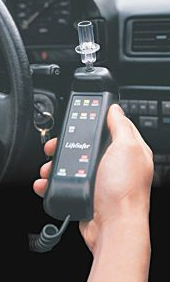
When a machine is given the power to convict a person of a crime, we should be absolutely certain the machine is working properly. In Ohio, machines are used to measure the concentration of alcohol in the breath of drivers. A driver who operates a vehicle with a breath alcohol concentration of .080 or more is guilty of OVI, even if that person’s ability to drive was not impaired by the alcohol. As breath-testing machines have that much power, the accuracy and precision of the machines is critical, so they are subjected to a weekly instrument check. A recent case by an Ohio appellate court downplays the importance of those weekly instrument checks.
 Columbus OVI/DUI Attorney Blog
Columbus OVI/DUI Attorney Blog





 Fourth amendment law does not lend itself to mathematical formulas. Rather than using equations to decide Constitutional issues, courts look at the totality of the circumstances and make decisions on a case-by-case basis. This is particularly true when it comes to the issue of whether an officer had probable cause to justify an arrest. However, one theorem illustrated by a recent Ohio OVI case is this: clues on Field Sobriety Tests (FSTs) does not equal Probable Cause (PC).
Fourth amendment law does not lend itself to mathematical formulas. Rather than using equations to decide Constitutional issues, courts look at the totality of the circumstances and make decisions on a case-by-case basis. This is particularly true when it comes to the issue of whether an officer had probable cause to justify an arrest. However, one theorem illustrated by a recent Ohio OVI case is this: clues on Field Sobriety Tests (FSTs) does not equal Probable Cause (PC).



